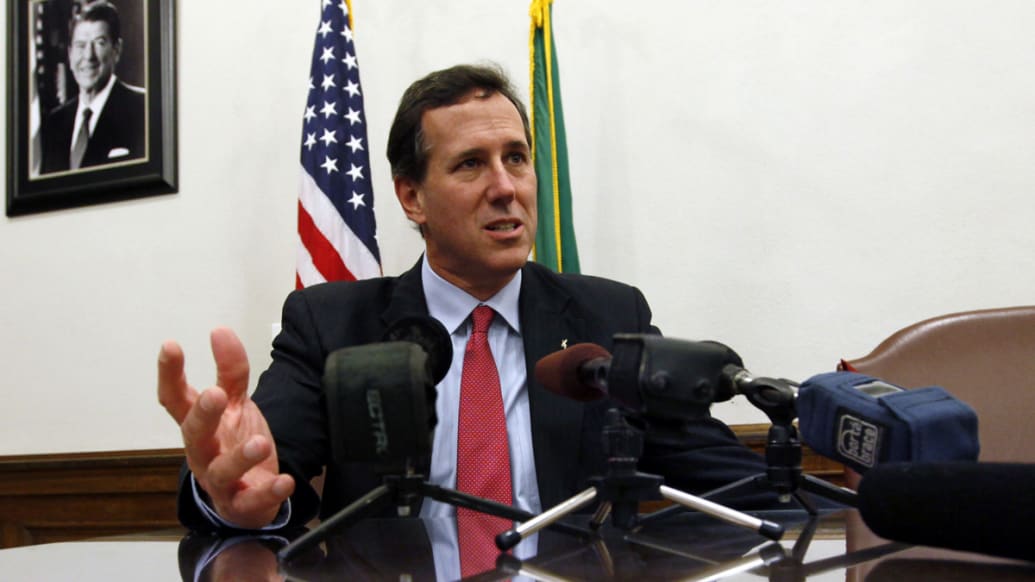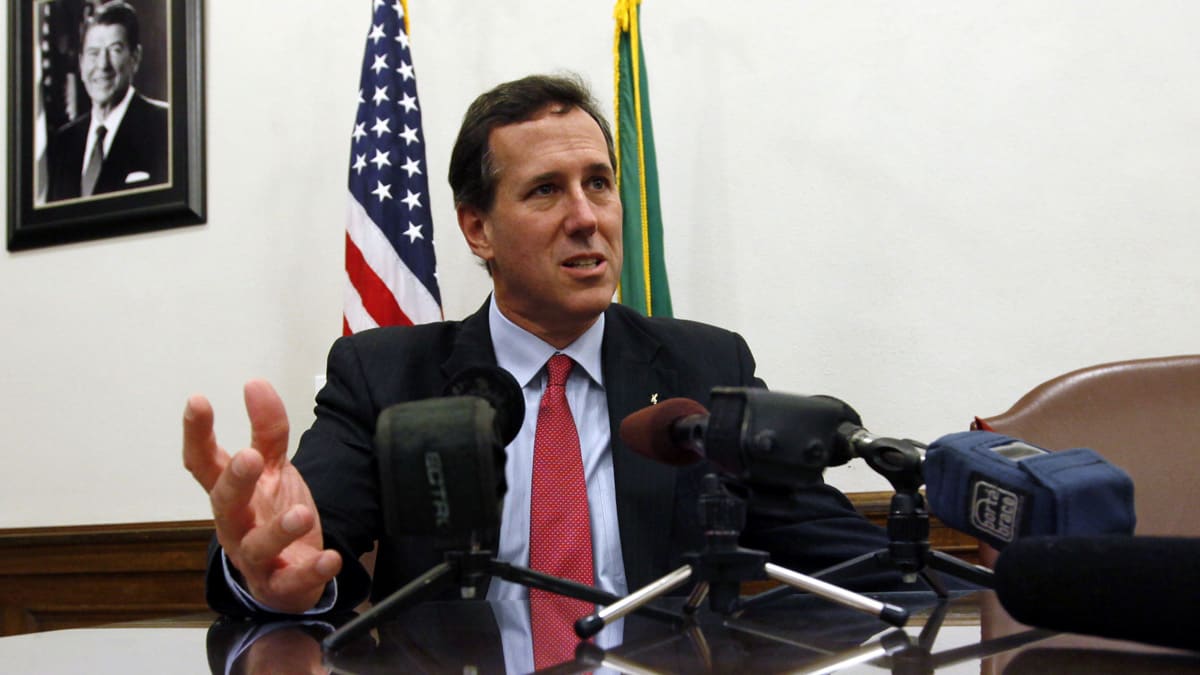The Democrats who crossed over Tuesday to vote for Rick Santorum are hardly a new phenomenon in Michigan politics. There is an enduring belief that mischievous crossover voters played key roles in George Wallace and Jesse Jackson’s victories in the Democratic primaries there in 1972 and 1988, and in John McCain’s win there in the 2000 GOP primary.
Past Michigan, there’s a longstanding tradition in the U.S., and worldwide, of voters from one party interfering in the other party’s selection process. Some famous examples:
RUSH LIMBAUGH AND OPERATION CHAOS
In 2008, Rush Limbaugh aimed to keep the Democratic primary contest going month after month to weaken the eventual nominee against John McCain. To that end, he launched “Operation Chaos,” encouraging his listeners to cross party lines and back Hillary Clinton to keep the nomination process going deep into the spring. While the data is inherently sketchy, there is some evidence to suggest that Operation Chaos helped push Hillary Clinton over the top in the Texas primary. But it was still an unorganized effort, while Limbaugh has a powerful bully pulpit, he does not have a political machine.
CHARLIE WILSON
In 2006 Democrats seemed poised to hold on to Ohio’s Sixth Congressional District, a swing district of river towns strung along the Ohio River in Appalachia. However, there was an unexpected obstacle when the favored candidate for this open seat, state Sen. Charlie Wilson, was rejected for the ballot after failing to collect 50 verifiable signatures from the district, and was forced to launch a desperate write-in primary campaign. Republicans then launched a substantial advertising campaign to try and ensure one of the nonentities on the ballot would claim the party contest.
However, after substantial investment in a write-in campaign, including a jingle and television ads, Wilson eventually pulled out a victory in the party contest and went on to be elected to Congress, where he served two terms before losing in 2010.

RALPH NADER
After acting as the spoiler in the 2000 presidential election, Ralph Nader still sought to run for president again in 2004. This time, most of his supporters, regardless of their dissatisfaction with the Democratic Party, just wanted George W. Bush out. Nader had become anathema to many of the college students and ardent liberals who had supported him four years before. So without the support of his natural base, a significant amount of his donations came from rich Republicans. In fact, in Michigan, of all places, Nader only made the ballot because of the support of the Republican Party.
MICHAEL FORBES
Michael Forbes was a Republican from the eastern end of Long Island whose disgust with the Clinton impeachment led him to change parties and become a Democrat. The Republican Party then put a bull’s eye on him, and tried to take advantage of his lingering relative unpopularity among many Democrats who had voted against him prior to his defection. As a result, when he faced a primary challenge from a cranky retired librarian named Regina Seltzer, the Republican Party chimed in with a wave of attack ads aimed at him for being too conservative. Although Forbes had changed parties, he hadn’t changed all of his positions and was out of touch with many Democratic primary voters. Backed by this Republican support, Seltzer eked out a narrow 35-vote victory in a low-turnout primary. Needless to say, she went on to lose the general election by a far more substantial margin.
TONY BENN–MICHAEL MEACHER
In the 1988 contest for leadership of the Labour Party in the U.K., the incumbent, Neil Kinnock faced a challenge from the far left of the party, led by Tony Benn, who ran on a ticket with fellow left winger, Michael Meacher. Although Kinnock won a landslide victory, not all of Benn’s support came from disaffected party members on the fringe. Because party rules allowed all members of affiliated unions to vote, a union local voted in a block for Benn and Meacher. They were the staff of the centrist Social Democratic Party (now the Liberal Democrats), which was entirely unionized. Although their votes were not decisive, it was a rare case when the leadership of one political party was able to meddle freely in the internal politics of their rivals.

